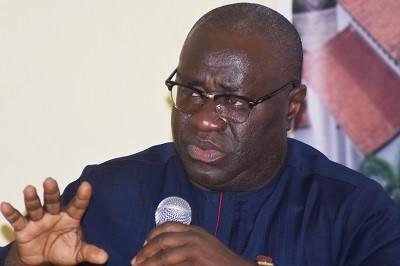Security consultant, Prof. Kwesi Aning, has raised concerns about the high rate of corruption, which has almost become a norm in the country.
Speaking at the Republic Day Lecture at the Ghana Armed Forces Command and Staff College, Prof. Aning stressed that corruption is the most significant and persistent threat to the country’s security, surpassing other threats like extremism.
He urged the Military to conduct thorough analyses to understand the networks, interdependencies, and tools needed to respond to corruption’s impact.
“Mr. [Francis] Poku talked about operations not being politicised, which I think we all know the answer to. So what are the main security threats the Military must look at? Mr. Poku talks about high threats, these are consistently very fluid and keep on moving and shaping so today it might be valid extremism, and tomorrow it might be about sanitation. But the abiding and consistent threat to this country is corruption.”
“We [have] become so corrupt that that is the glue that binds the nation and I think the Military, there needs to be consistent analysis and threat assessment about what the next impact of what corruption is, what are the networks and what are the interdependences and interrelations and how and what are the tools for a response.”
Prof. Aning also highlighted the escalating threat of illegal mining (galamsey) to Ghana’s national security, emphasising the alarming rise in arms use and illicit financial flows from foreign actors involved in galamsey.





















